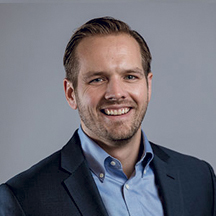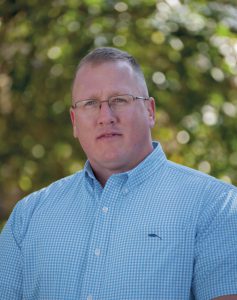Salute to Service
PLANNING, PROBLEM SOLVING, DISCIPLINE AND DETERMINATION
Military work ethics prepared veterans for insurance careers
By Christopher W. Cook
The past few installments of my Salute to Service feature have covered firms that help veterans get started and trained with insurance careers. This time around, we’re going to go back to this article’s origins and feature individuals, who will share their military experiences, how their training assisted with their new careers, and their thoughts on why the insurance industry is a good fit for veterans. Before we begin, to all the veterans out there, “Thank you for your service.”
Special Forces Officer Furlong
Alex Furlong, practice leader of wholesale broking at One80 Intermediaries, served eight-plus years on active duty with the U.S. Army, from 2005 to 2013.
“My first few years were spent as an Infantry Officer, including time leading a platoon in combat in Afghanistan,” Furlong says. “I then transitioned to the U.S. Army Special Forces (Green Berets), where I commanded two Special Forces teams on assignments throughout the world. I left the Army in 2013 to pursue my private sector career.”
This pursuit led Furlong to the insurance industry. “When I was planning my transition out of the military, one of my former commanders and mentors mentioned that he had a good friend in the wholesale insurance space,” Furlong says. “I was looking at transitioning into a sales role after my military service and interviewed for a broker role with a large U.S. wholesale brokerage firm and it felt like a great fit.
“The opportunity to work in an entrepreneurial environment that rewarded hard work was very appealing to me,” he adds. “After my first interview and further research I knew it was the right career path for me.”
Furlong believes that his experience in the military helped with the transition. “The military develops officers to become experts in leadership, planning, and problem solving,” he says. “All three of these traits are invaluable in the insurance industry.
“Planning and problem solving are two of the most important traits in a brokerage role, as an individual producer must be able to develop and execute a plan to build their book of business. Leadership is essential as your career develops and you find yourself in more roles leading teams, divisions, and entire organizations. I find that my prior military leadership experience is becoming more critical as I progress through my career and have more responsibility for broader parts of my organization.
“The best leaders do two things well: They make great decisions and they inspire their people,” Furlong continues. “The military provides an excellent foundation upon which to execute these two tasks extremely well in the insurance industry.
“The insurance industry is a fantastic career path for veterans. It rewards individuals for hard work and has tremendous opportunities to build and develop teams. If a veteran is interested in seeing their individual work ethic rewarded in a way that reflects their dedication and commitment, a career in the insurance industry is a fantastic avenue to pursue. Likewise, an insurance career can provide excellent opportunities to lead and inspire others, so it really is an industry that can allow a veteran to leverage their skillset in a variety of ways.”
Sergeant Robertson
 For Aron Robertson, owner of Robertson Insurance Group in San Antonio, Texas, The Marine Corps was always a goal. “My dad was a Marine. My uncle was a Marine. I knew since I was three or four, old enough to say the word and understand the concept, that I wanted to be a Marine,” he says.
For Aron Robertson, owner of Robertson Insurance Group in San Antonio, Texas, The Marine Corps was always a goal. “My dad was a Marine. My uncle was a Marine. I knew since I was three or four, old enough to say the word and understand the concept, that I wanted to be a Marine,” he says.
Robertson enlisted, ultimately spending four years on active duty and followed by four years of reserve duty.
“I went to boot camp at MCRD in San Diego, and after training on the west coast was stationed at Camp Pendleton, which is a little farther north of San Diego, with the 1st Combat Engineer Battalion,” Robertson says. “As a combat engineer, we put in mines, explosives, took out minefields and worked with infantry units. If there was a door that was barricaded, we’d blow it off the hinges. If there was a minefield, we’d take it out. We worked with demolition explosives.”

“The insurance industry is a fantastic career path for veterans. It rewards individuals for hard work and has tremendous opportunities to build and develop teams.”
-Alex Furlong
Practice Leader, Wholesale Broking
One80 Intermediaries
Based on merit and scores, Robertson was promoted to Corporal in under two years. During his time in the Marines, he would serve on the USS Peleliu and USS Bonhomme Richard and complete a couple of tours, seeing various parts of the world like Hawaii, Japan, Singapore and the Middle East. During his third year of active duty, he was promoted to Sergeant.
“I got out of the Marine Corps on August 23, 2001, with aspirations of going to college, and shortly after, 9/11 happened,” he recalls. “My whole platoon went to Tajikistan. I didn’t get called back only because I’m a sole surviving son; it’s part of the U.S. military’s rules.”
Robertson was studying biology at Texas Tech University when he was called to the insurance industry. While taking classes, he also worked selling cars, where he would sell a vehicle to one of his wife’s cousins.
“I knew the guy made good money; I just didn’t know exactly what good money was,” Robertson says. “I went into finance and saw his financial statements and I was completely blown away. I went back to my desk and had a heart to heart with myself. I decided to send him a text message and said that I wanted to get involved in the insurance business.”
Robertson began his career as an agent with Aflac, selling ancillary, supplemental products. He then moved to San Antonio as a district manager, where he decided that he wanted “to offer more to my clients,” he says. “So, I opened up my own agency. I didn’t acquire anything. I didn’t buy anything. My daddy didn’t own an agency, so everything I’ve got so far was thrown together by the sweat on our brow.”
The image of sweat on one’s brow summarizes why Robertson believes insurance is a great career choice for veterans, particularly his fellow Marines.
“While Marine Corps is military, Marines are very different people; we train and think differently,” Robertson says. “The Marine Corps helped me [with my insurance career] because they don’t give you an option to give up. The Marine Corps has a reputation for having the fiercest fighting force and the most rigorous training available. You go in there, knowing that’s the case, but you also know that the reward of wearing the uniform of a Marine is going to be worth it.
“Much like an insurance career, you know it’s going to be hard. It’s up to you to thrive. If you like the structure, discipline, determination, and the processes that the military gave you, you’re probably going to love insurance, because there’s a lot of that in here,” he concludes.

“If you like the structure, discipline, determination, and the processes that the military gave you, you’re probably going to love insurance, because there’s a lot of that in here.”
-Aron Robertson
Owner
Robertson Insurance Group
Do you know a veteran working in insurance who would like to share their story and thoughts on veterans working in the industry? If so, please email details about them as well as contact information to Christopher W. Cook (chrisc@roughnotes.com). We’ll take it from there.






